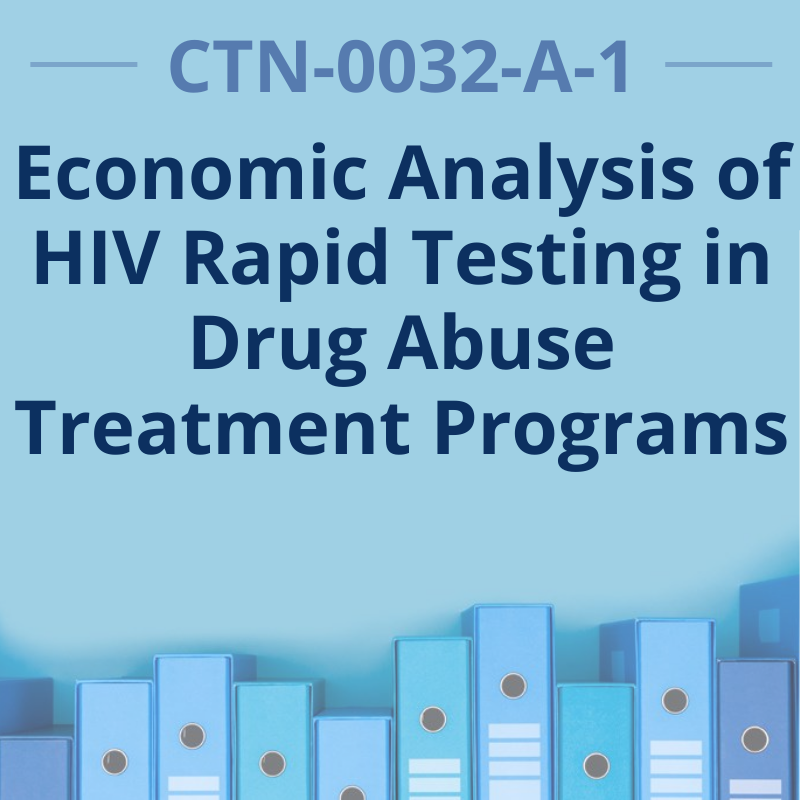CTN-0032-A-1: Economic Analysis of HIV Rapid Testing in Drug Abuse Treatment Programs

Bruce Schackman, PhD
Lead Investigator
Weill Cornell Medical College – Department of Public Health
Division of Health Policy
brs2006@med.cornell.edu
Specific aims of this study (which will be done in collaboration with and support from NIDA Division of Epidemiology, Statistics, and Prevention Research) are: (1) collect data on the costs of the three HIV testing strategies evaluated in the trial, including counselor time, test costs, administration and overhead costs, and counselor training costs. (2) conduct an assessment of the cost-effectiveness of on-site HIV testing in drug abuse treatment settings (with and without counseling) versus referral for off-site testing using the CEPAC model. The analysis will consider a hypothetical cohort of drug abuse treatment clients, and will evaluate the sensitivity of cost-effectiveness results to plausible ranges of data inputs derived from the CTN 0032 site selection, screening, and baseline interviews, and from the literature and expert opinion. Model input data will include history of prior testing, acceptance of HIV testing, receipt of test results, HIV prevalence and incidence, linkage to HIV care among those testing positive, rate of false negative test results, and costs of testing.
Primary Findings
Offering rapid HIV testing onsite in substance abuse treatment programs is cost-effective using the U.S. threshold of <$100,000 per quality-adjusted life year.

Results Article: Schackman BR, Metsch LR, Colfax GN, et al. The Cost-Effectiveness of Rapid HIV Testing in Substance Abuse Treatment: Results of a Randomized Trial. Drug and Alcohol Dependence 2013;128(1-2):90-97. [get article]
Related Studies
- CTN-0032: HIV Rapid Testing and Counseling in Drug Abuse Treatment Programs in the U.S.
- Project Aware: HIV Rapid Testing & Counseling in STD Clinics in the U.S. — An Adaptation of CTN-0032
Related Resources
Node Involvement
Lead Node(s):
All Participating Nodes: